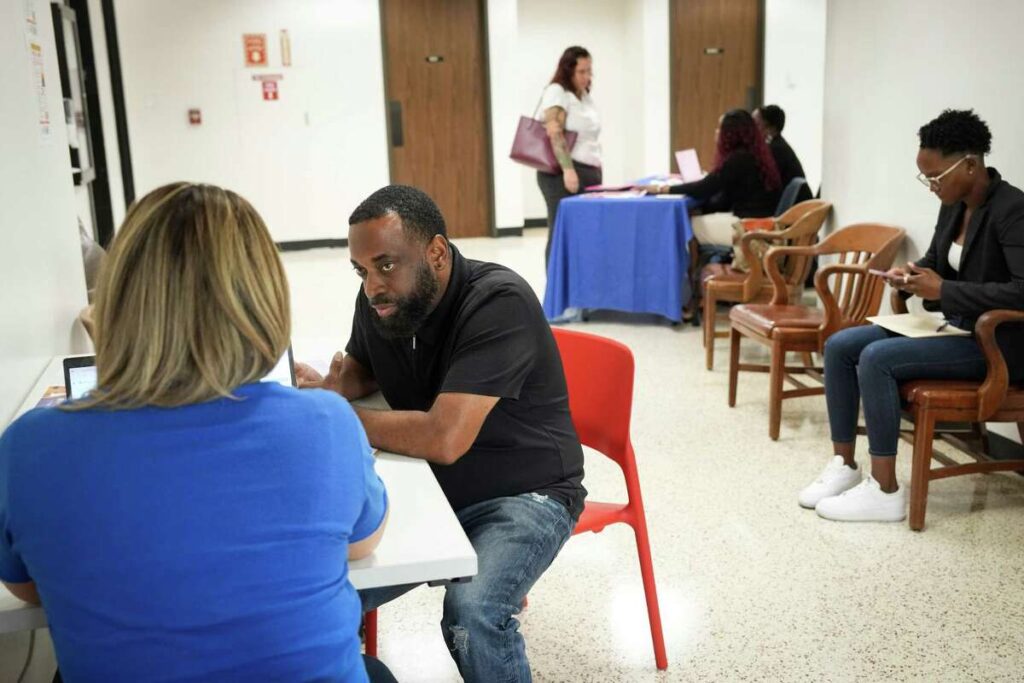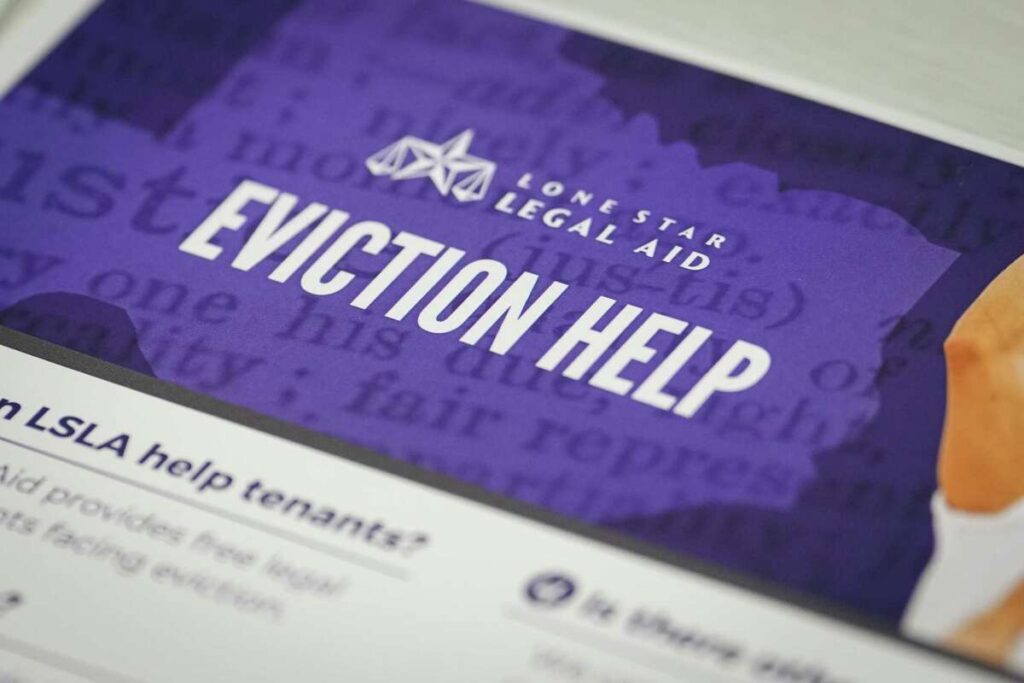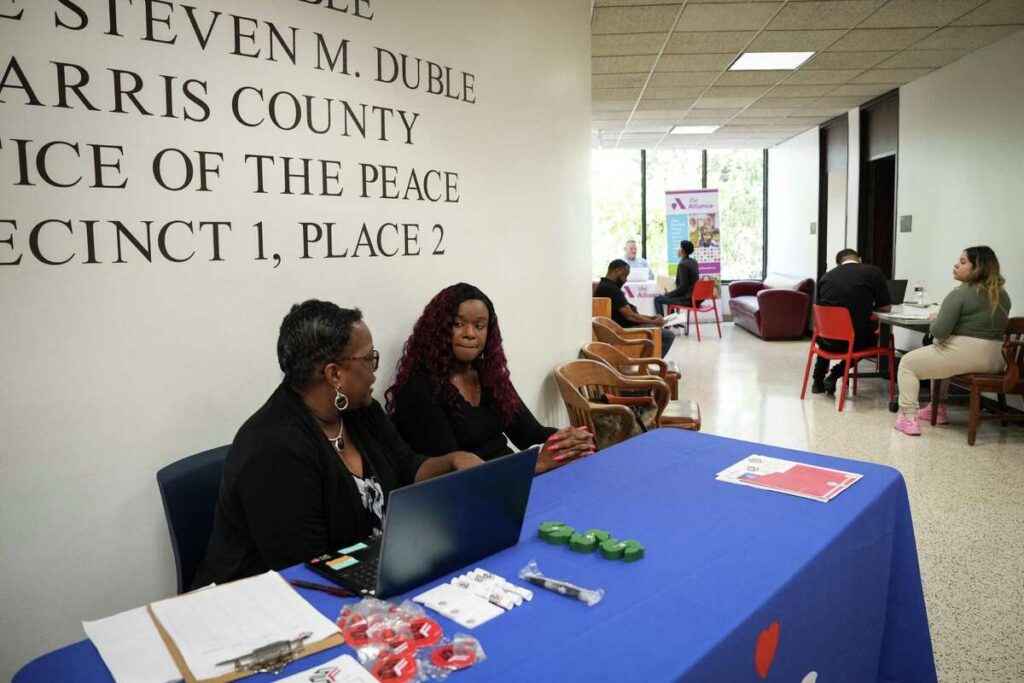An eviction court as a resource hub? Judges in Harris County win grant to hire eviction diversion facilitators
At a downtown courtroom, tenants, property managers and lawyers were quietly awaiting their eviction cases when a constable stood up and addressed the room. Before Judge Steve Duble would hear their cases, he explained, there was something they needed to do.
One by one, he introduced representatives from a series of nonprofits. Lone Star Legal Aid was there to provide qualifying tenants with free legal representation. Civic Heart could connect people in the room with occupational training and free food. The Alliance could talk about the emergency rental assistance program.
He asked all tenants go to the lobby outside to speak with the resource providers.
Since the pandemic, Harris County justice of the peace judges have wrestled with the question of how to handle a growing number of eviction filings. For example, Judge Wanda Adams has Civic Heart offer qualifying tenants free training in fields including forklift operations, welding and logistics.
Many have welcomed free legal aid into their courtrooms, so that lawyers can connect with those who show up without representation. The University of Houston Law Center’s grant to provide free legal aid in Judge Dolores Lozano’s recently ran out, but her courtroom also has a representative from the Alliance help with rent relief applications, and she passes out a sheet of resources.
Now, a grant for nearly $300,000 will allow Duble and Lozano to create new staff positions they hope will further aid people who come to court during difficult times in their lives: eviction diversion facilitators.
The National Center for State Courts grant will allow both courts to hire an eviction diversion facilitator for a year and a half, with a possibility of extending funding. After the grant, the judges hope to make the position part of their normal budgets. The facilitators, whom they hope to have in place by early October, will be tasked with providing tenants with resources.
“I’m hoping this role helps define what the best practices are for handling eviction cases,” Lozano said in an email. She hoped the facilitators would be able to analyze data to determine needs and best practices.
“Long term, my vision,” Duble explained, “is turning courts like my court into a point of connection to a wide range of legal and supportive services.”
The two judges hope the facilitators will not only connect tenants and landlords with rent relief — the future funding of which is uncertain — but with other services that can help address the root causes of the eviction. “It’s often a loss of a job or loss of income,” Duble explained.
Resources that could help people gain stability could also be extended to other dockets — such as those for misdemeanor, small claims or debt claim cases. Duble said that the facilitators would also be able to share their practices with other justice of the peace courts throughout Harris County (there are 16); other courts may be able to apply for the grant in future years.
Duble first heard of the grant through Nathan Hecht, the chief justice of the Texas Supreme Court, who in 2022 wrote an essay for the New York Times titled “It should take more than 10 minutes to evict someone.” In it, Hecht described the far-reaching consequences of an eviction, “affecting a tenant’s financial, educational and housing stability, as well as the ability of the landlord to maintain her or his property.” And he recommended that courts collaborate with other organizations to “address the root causes of eviction and reach more sustainable solutions.”
At the time, both Duble and Lozano were on the campaign trail. “We had like minds and wanted to come up with creative and fresh ways to rethink how we do things,” Duble said.
When they were elected, they quickly moved to apply for the grant.
Click HERE to read the full article at Houston Chronicle





